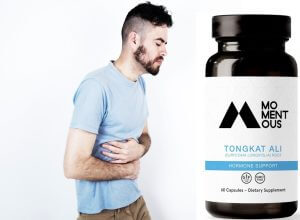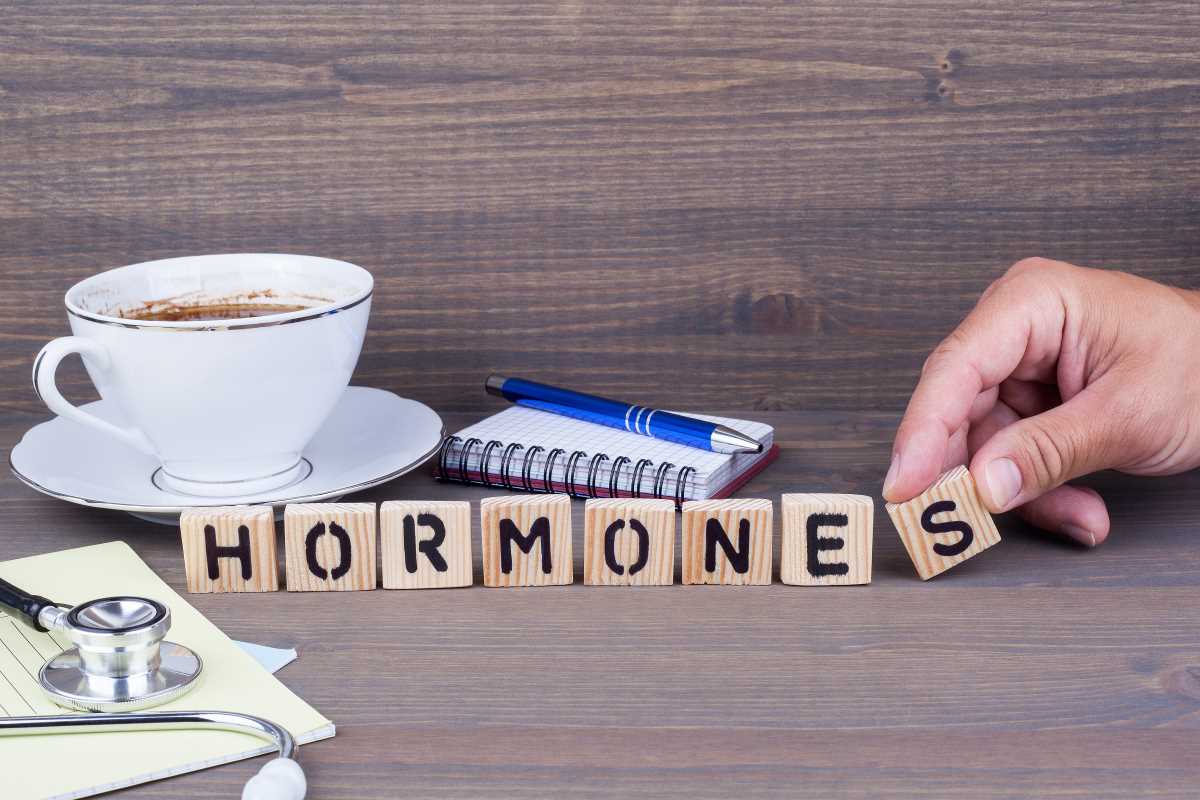

Keeping a healthy hormonal balance is key to a good health. Key hormones such as testosterone, estrogen, cortisol, DHEA, dopamine controls our reproductive system, immune system, nervous system, gut system, mood profile and many other functions.
As we age, our hormone gets depleted and this may affect your energy, stamina, mood, fertility, libido, and even your immune system.
Studies showed that hormones require a healthy dose of nutrients for optimal health.
Natural supplements such as Tongkat Ali, Ashwagandha, Probiotics, Vitamin B and potassium are used by most men and women above 40s and 50s to restore hormonal balance.
This article lists the top natural supplements and vitamins that may help you achieve a balanced hormone. We shall also touch on the side effects of using these supplements.
Without nutrients, our body struggles to produce hormones in sufficient quantity for optimal health. Supplements may be required to keep your hormones healthy by addressing the gap in nutrient deficiencies that you may have.
Dietary supplements are commonly used as a preventive measure to mitigate risks associated with premature aging symptoms.
Some of premature aging symptoms that are hormone related include but not limited to:
Poor nutrition is a top contributor to early hormone imbalance. Other causes include lack of exercises due to sedentary lifestyle, hereditary and possible underlying medical conditions.
For example, a typical American diet from processed foods and fast food contain large amount of starchy carbohydrates and sugar. This leads to symptoms of hormone imbalance, such as moodiness, weight gain, fatigue, reduced libido, wrinkles, and increased disease risk.
Now let’s, deep dive into each of the supplements to understand better.
Tongkat Ali, or Eurycoma longifolia, contains eurycomanone and glycosaponin that have profound impact to our hormones.
Tongkat Ali has gained recognition for its overall positive effects if you are seeking for a hormonal balance in your endocrine system, particularly to restore your testosterone levels, estrogen, or balancing cortisol (stress hormones), and dopamine (feel good hormones) for overall health.
Growing Tongkat Ali clinical studies showed promising results of free testosterone levels, muscle growth, reduction of body fat, bone density, mood stability, and sexual function across men and women.
This makes Tongkat Ali a hormonal supplement for aging men and women. If you are an aging prematurely, Tongkat Ali could be used as a natural supplement to restore overall hormonal balance.
With more than 12 scientifically proven health benefits, Tongkat Ali contains adaptogenic properties that activates signals in the hypothalamus (i.e in your brain) to send the message to the pituitary, adrenal and thymus glands to produce more hormones. Some of these benefits translate to releasing free testosterone, estrogen and cortisol foster overall vitality.
Ashwagandha, a revered herb in Ayurvedic medicine, holds tremendous potential in promoting hormone balance and other health benefits. Its active compounds, called withanolides, have a profound impact on the endocrine system, enabling the regulation of hormone levels within the body.
Ashwagandha’s adaptogenic properties make it an effective ally in managing cortisol, the primary stress hormone. By modulating cortisol levels, ashwagandha helps alleviate the negative effects of chronic stress and fosters a more balanced stress response.
Moreover, ashwagandha has shown promising results in supporting thyroid health. It assists in regulating the thyroid-stimulating hormone (TSH) as well as triiodothyronine (T3) and thyroxine (T4) levels, essential for proper thyroid function. This makes ashwagandha beneficial for individuals dealing with hypothyroidism or hyperthyroidism.
Ashwagandha also plays a vital role in reproductive health. It has been found to enhance testosterone levels in men, thereby improving fertility and libido, although studies are limited to a small test participants.
For women, ashwagandha helps regulate follicle-stimulating hormone (FSH) and luteinizing hormone (LH), which are crucial for healthy ovulation and menstrual cycles.
Whilst ashwagandha’s studies are limited, ashwagandha’s ability to manage stress has made it popular if you are seeking to improve mood. By reducing anxiety and promoting relaxation, ashwagandha contributes to a more harmonious hormonal environment.
However, taking ashwagandha over a long period may cause emotional blunt or numbness, with increasing number of users reporting feeling emotionally detached and unresponsive.
Nigella seeds, also called black seeds or kalonji, have been valued for their health benefits. While research on their direct impact on hormones is limited, these seeds contain compounds that may contribute to hormonal balance.
One potential way in which nigella seeds may support hormonal balance is through their anti-inflammatory properties.
Thymoquinone, a compound found in nigella seeds, exhibits anti-inflammatory effects. Since chronic inflammation can disrupt hormone balance, reducing inflammation in the body may indirectly promote hormonal health.
Moreover, nigella seeds are rich in antioxidants, which help combat harmful free radicals and oxidative stress. By reducing oxidative stress, antioxidants may contribute to overall well-being, including potential benefits for hormonal regulation. Another area of interest is the potential of nigella seeds to regulate blood sugar levels. Stable blood sugar levels are essential for hormonal balance, particularly in conditions such as polycystic ovary syndrome (PCOS).
Furthermore, nigella seeds contain phytoestrogens, plant compounds that weakly interact with oestrogen receptors in the body. These compounds may have subtle estrogen-modulating effects, potentially beneficial in conditions where estrogen balance is disrupted, such as menopausal symptoms. However, more research is necessary to better understand the extent and specific mechanisms of these effects.
Black cohosh root, derived from the plant Actaea racemosa, has been widely recognized for its potential in promoting hormonal balance. Native to North America, this herbal remedy has gained popularity for its effects on various hormonal processes within the body.
Black cohosh root contains bioactive compounds such as triterpene glycosides, including actein and cimicifugoside, which are believed to interact with hormonal pathways. These compounds are thought to have mild estrogenic effects by binding to estrogen receptors, leading to hormonal regulation in the body.
It has also been primarily studied for its potential benefits in managing menopausal symptoms. During menopause, a woman’s estrogen levels decline, leading to various discomforts like hot flashes, night sweats, and mood swings. Black cohosh root is believed to alleviate these symptoms by exerting estrogen-like effects, helping to balance hormone levels and mitigate menopausal discomfort.
In addition to menopause, black cohosh root may also aid in menstrual health via its potential anti-inflammatory and muscle relaxant properties which may help reduce menstrual cramps and discomfort. By supporting hormonal balance, it may contribute to more regular menstrual cycles.
Chasteberry, also known as monk’s pepper, is a herbal remedy that has long been valued for its ability to promote hormonal balance, particularly in women. Its mechanisms of action are not fully understood, but chasteberry is believed to have a positive impact on the hypothalamus and pituitary glands, which play crucial roles in regulating hormone production.
Rich in active compounds like flavonoids, iridoid glycosides, and essential oils, chasteberry is thought to exert its influence on the hormonal system in several ways. Firstly, it helps regulate prolactin levels, a hormone involved in reproductive functions. By normalizing prolactin levels, chasteberry can help address symptoms such as irregular periods and fertility issues.
Secondly, chasteberry modulates follicle-stimulating hormone (FSH) and luteinizing hormone (LH), both of which are key to a healthy menstrual cycle. By balancing these hormones, chasteberry promotes regular ovulation and supports hormonal equilibrium. Furthermore, chasteberry indirectly enhances progesterone production, an important hormone for maintaining menstrual regularity. By promoting progesterone synthesis and regulating the estrogen-to-progesterone ratio, chasteberry aids in restoring hormonal balance.
Lastly, chasteberry has been traditionally used to alleviate symptoms associated with premenstrual syndrome (PMS), such as mood swings, bloating, and breast tenderness. Chasteberry helps in balancing hormone levels and modulating neurotransmitters like dopamine and serotonin, which in turn reduces PMS symptoms and promotes emotional well-being.
Many women are unaware of the significant influence gut health has on hormone balance and may not know where to begin when it comes to improving it. However, incorporating probiotics into your routine is important for maintaining a healthy gut, and they can provide numerous benefits for women’s hormone balance. Understanding the most effective probiotics for promoting hormone balance in women and utilizing them optimally can be instrumental in achieving desired results.
Probiotics refer to living microorganisms that can be ingested through fermented foods or supplements. A lot of research shows the crucial connection between the composition of bacteria in your digestive system and your general well-being, as well as the development of diseases. These benefits encompass clear skin, better mood and mental health, improved vaginal health and fertility also gut health.
During certain periods like monthly cycles, pregnancy, or menopause, women may experience mood-related problems due to changes in hormone levels. Research has indicated that maintaining a healthy gut microbiome is essential for promoting good mental health, as an imbalance in the gut bacteria can contribute to mood issues. This is because our gut bacteria can mimic our body’s hormones and communicate with our brains via the vagus nerve, playing a crucial role in regulating our mood. This connection between the gut and brain is known as the gut-brain axis.
Probiotics are vital for maintaining a healthy digestive system, and they also have a positive impact on our hormone levels. By selecting a reliable probiotic supplement and consuming a diet abundant in gut-healthy foods, we can actively support our bodies in attaining hormonal balance.
B vitamins serve as cofactors in the detoxification process, which is essential to the health of your endocrine. This is due to the fact that hormones are continuously recycled in our systems; our livers break down their constituent parts, which are then either safely recycled or reused.
During pregnancy and breastfeeding, the demand for B vitamins, particularly B12 and folate, rises to support fetal development. Supplementing with B-complex vitamins becomes crucial, especially for vegetarians, vegans, and those nursing infants, to prevent brain impairment or birth defects caused by B12 or folate deficiency.
In a 33-day study involving 215 healthy men, a high-dose B-complex and mineral supplement treatment demonstrated positive effects. It improved overall mental health, reduced stress levels, and led to enhanced cognitive performance on tests, highlighting its potential benefits for mood elevation and cognitive function.
Taking a B-complex supplement as recommended is unlikely to result in excessive nutrient intake due to the water-solubility of B vitamins. However, consuming excessively high amounts may have adverse effects. Bright yellow urine caused by excess B vitamins is harmless, as it indicates the body’s elimination of surplus vitamins.
The human body’s cells require a combination of lipids called lecithin. Many foods contain it, including egg yolks, rapeseed, milk and soybeans. Choline, a substance related to the B vitamins, is mostly found as lecithin in the diet. Acetylcholine, a chemical that carries nerve impulses, is created from lecithin.
Research indicates that lecithin supplements may offer several health benefits. Some studies suggest that they can help lower cholesterol levels, reduce blood pressure, and alleviate symptoms of ulcerative colitis. Lecithin supplements also serve as a source of choline, an essential nutrient vital for cellular health and proper functioning of the nervous system.
Potassium is considered essential nutrients. It is crucial for the body to obtain essential nutrients from food since it cannot produce potassium on its own. Potassium is often undervalued despite its great importance in maintaining health. As an electrolyte, this mineral exhibit significant reactivity when in contact with water, resulting in the production of positively charged ions.
This unique property enables potassium to play a crucial role in conducting electricity, which is essential for various bodily processes. The following article presents an in-depth exploration of potassium and its profound impact on overall health.
The body is composed of around 60% water, with 40% existing inside cells as intracellular fluid (ICF) and the rest outside cells as extracellular fluid (ECF). The concentration of electrolytes, particularly potassium and sodium, influences the distribution of water between these compartments. Potassium regulates water inside cells, while sodium controls water outside cells. Maintaining equal electrolyte balance, known as osmolality, ensures stability. When osmolality is imbalanced, water moves to equalize electrolyte concentrations, potentially causing cells to shrink or swell. Optimal fluid balance is crucial for overall health, and consuming a potassium-rich diet while staying hydrated helps maintain it, preventing dehydration-related complications.
Potassium is a mineral that functions as an electrolyte within the human body. Virtually every cell and tissue in the human body needs electrolytes to complete basic functions.
Potassium helps maintain water balance, blood pH, blood pressure, muscle movement, communication between neurons, regular heartbeat. Therefore, having blood potassium levels within normal limits is important for maintaining optimal health.
Vitamin K exists in two forms and is a type of fat-soluble vitamin. The primary form is known as phylloquinone, which is abundant in green leafy vegetables such as collard greens, kale, and spinach. The second form, called menaquinones, can be found in certain animal-derived foods as well as fermented foods. Additionally, menaquinones can be synthesized by bacteria present in the human body.
Vitamin K plays a crucial role in supporting bone growth and metabolism, and a deficiency in this nutrient has been associated with bone injuries, including fractures and bone diseases like osteoporosis.
Early research suggests that vitamin K supplements may have the potential to reduce fracture rates, making them particularly beneficial for postmenopausal women with osteoporosis. However, further comprehensive research is required to fully comprehend the connection between supplements and bone health.
Moreover, vitamin K may have a role in inhibiting the accumulation of calcium in blood vessels, which is considered a significant indicator of heart disease. Specifically, vitamin K2 is believed to assist in preventing this build up. Therefore, ensuring an adequate intake of vitamin K2 in your diet may help prevent calcium build up and promote heart health. Nevertheless, additional studies are needed to gain a comprehensive understanding of the relationship between vitamin K and heart health.
Warnings:
Please consult a medical professional or nearest doctor for further advice if you are using any or a combination of the above supplements for your hormones. Combining the above supplements may cause side effects or drugs interactions. Taking hormonal supplements are not intended for children below 18, pregnant women or patients with serious medical conditions.

Naressa Khan contributes regularly on AKARALI and is part of the global Tongkat Ali research team. As a writer and journalist, Naressa specializes in nutrition, health supplements, and natural wellness. With this approach always in mind, she explores fact-based and scientific evidence of topics related to health, herbs and natural wellness.
Our articles are third party reviewed by our panel of experts and medical advisors to ensure the facts are accurate and credible. These are validated against multiple source references which include but not limited to research studies, peer-reviewed journals, pre-clinical studies, clinical tests and other credible publications.
Our panel of medical advisors and experts are highly experienced in their individual fields. However, they do not provide any medical advice or recommendations arising from content published in this article.
Disclaimer: The content published in this article is for educational purposes and not intended to provide any form of recommendations, directly or indirectly to purchase or consume herbal supplements, drugs, medications, alternative remedies and practices or any brands mentioned in this article. By reading this, the sole responsibility and decision lies on the reader to make an informed decision based on publicly available information published on the internet. Any herbal supplements can be used as a health supplement, dietary plan or to treat illnesses. However, we encourage you to consult your nearest doctor before making any purchase from this website or any other websites or social platforms after reading this article. We do not hold any responsibility or accountability for any products purchased from this website or any third-party websites that are linked to this articles, sales channels or social platforms.